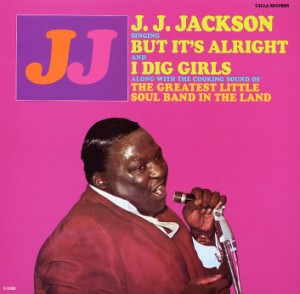Related Research Articles

The Sonics are an American garage rock band from Tacoma, Washington that formed in 1960. Their aggressive, hard-edged sound has been a major influence on punk and garage music worldwide, and they have been named inspirations to the White Stripes, LCD Soundsystem, and other musical artists.

The J. Geils Band was an American rock band formed in 1967, in Worcester, Massachusetts, under the leadership of guitarist John "J." Geils. The original band members included vocalist Peter Wolf, harmonica and saxophone player Richard "Magic Dick" Salwitz, drummer Stephen Bladd, vocalist/keyboardist Seth Justman, and bassist Danny Klein. Wolf and Justman served as principal songwriters. The band played R&B-influenced blues rock during the 1970s and soon achieved commercial success before moving toward a more mainstream radio-friendly sound in the early 1980s, which brought the band to its commercial peak. They performed a mix of cover songs of classic blues and R&B songs, along with original compositions written primarily by Wolf and Justman, as well as some group compositions written under the pseudonymous name Juke Joint Jimmy, representing compositions credited to the entire band as a whole. After Wolf left the band in 1983 to pursue a solo career, the band released one more album in 1984 with Justman on lead vocals, before breaking up in 1985. Beginning in 1999, the band had several reunions prior to the death of its namesake, J. Geils, on April 11, 2017.

Blow Your Face Out is the second live album by American rock band The J. Geils Band, released in 1976.

Thomas John Dowd was an American recording engineer and producer for Atlantic Records. He was credited with innovating the multitrack recording method. Dowd worked on a veritable "who's who" of recordings that encompassed blues, jazz, pop, rock, and soul records.

"Land of a Thousand Dances" is a song written and first recorded by American rhythm and blues singer Chris Kenner in 1962. It later became a bigger hit in versions by Cannibal & the Headhunters and Wilson Pickett. A version by Thee Midniters reached #27 in Canada on March 22, 1965.

Mandala was a Canadian R&B and soul band from the 1960s. The band was formed in 1965 in Toronto, Ontario as The Rogues and changed their name prior to their first Canadian Top 40 hit "Opportunity".
"Superstar" is a 1969 song written by Bonnie Bramlett and Leon Russell with a songwriting credit also given to Delaney Bramlett that has been a hit for many artists in different genres and interpretations in the years since; the best-known versions are by the Carpenters in 1971, and by Luther Vandross in 1983.
Jerome Louis "J.J." Jackson is an American soul/R&B singer, songwriter, and arranger. His singing style is as a belter. Jackson best known for the song "But It's Alright", which he co-wrote with Pierre Tubbs. The song was released in 1966 and then re-released in 1969, to chart success on both occasions. The liner notes to his 1967 album, J.J. Jackson, on Calla Records, stated that he weighed 285 pounds.
Harvey Scales was an American R&B and soul singer, songwriter, and producer. Scales had been active in the music industry since the 1960s, and composed songs for groups such as The Dells, The Dramatics, and The O'Jays. He is particularly notable for his co-authorship of the songs "Love-Itis" and "Disco Lady". Once called Milwaukee's "Godfather of Soul" by a local reporter, Scales credited James Brown and the sound of "funk" for influencing his music career.
Eddie "Guitar" Burns was an American Detroit blues guitarist, harmonica player, singer and songwriter. His career spanned seven decades. Among Detroit bluesmen, Burns was deemed to have been exceeded in stature by only John Lee Hooker.

Goin' to Memphis is the eighth studio album by American rock band Paul Revere & the Raiders. Produced by Chips Moman, with the exception of one song that was produced by Terry Melcher, the album was released in 1968 and reached number 61 on the U.S. albums chart.
Mark London is a Canadian-born British soundtrack composer, songwriter and music producer. He is perhaps best known as composer of the song "To Sir with Love".
Lenny LaCour is an American record producer, songwriter and performer, particularly active from the mid-1950s to the mid-1970s. He is particularly notable as the producer of the principal recordings of singer Harvey Scales.
Filet of Soul was a Wisconsin-based band, primarily active from 1964 to the mid-1970s. The band is notable as being a white band that mixed soul and psychedelic music, and received airplay on black radio stations. The band was also notable as having been produced by Lenny LaCour.
Magic Touch Records is a record label founded in Milwaukee in the 1960s by producer, manager and performer Lenny LaCour. The label is particularly notable for developing the career of Harvey Scales, co-writer of the songs "Love-Itis" and "Disco Lady".
Adam Mitchell is a Scottish singer-songwriter, most notable for writing "French Waltz", which was a hit for Nicolette Larson; "Dancing Round and Round", which was a hit for Olivia Newton-John; and for his later co-writing work with Kiss on the albums Killers, Creatures of the Night, Crazy Nights, and Hot in the Shade.

"Come Back" is a song by the J. Geils Band, appearing on their 1980 album Love Stinks. "Come Back" was the first single from the album, and reached the US Top 40, peaking at No. 32 and remaining in the Top 40 for five weeks. It peaked at No. 19 for two weeks in Canada. It also made Billboard's Club Play Singles chart, peaking at No. 69. The song remains in the rotation of classic rock radio stations.

"Must of Got Lost" is a rock song by the American rock band The J. Geils Band. Released in 1974, the single reached in No. 12 the following year. Allmusic critic Joe Viglione described it as "one of the most memorable tunes by The J. Geils Band." A live version of the song, with an extended spoken-word introduction by Peter Wolf, appears on Blow Your Face Out, J. Geils Band's second live album. The live version receives considerable airplay on album-oriented rock format stations.

The discography of American rock band The J. Geils Band consists of 11 studio albums, three live albums, eight compilation albums, one video album, and 30 singles. Formed in 1967 in Worcester, Massachusetts, the band consisted of guitarist J. Geils, singer Peter Wolf, harmonica player Magic Dick, bassist Danny Klein, keyboard player Seth Justman, and drummer Stephen Jo Bladd. Their debut album, The J. Geils Band (1970), released by Atlantic Records, charted at number 195 on the United States Billboard 200. Their second album, The Morning After (1971), peaked at number 64 on the Billboard 200 and number 73 on Canada's Top Albums chart. It produced the single "Looking for a Love", which reached the top 40 in the US and in Canada.

"But It's Alright" is a song co-written by J. J. Jackson and Pierre Tubbs that became a hit on the pop and soul charts in both 1966 and 1969.
References
- ↑ Magic Touch Label Credits for "Love-Itis" on YouTube. Retrieved 2012-04-06.
- ↑ Atlantic Label version of "Love-Itis" on YouTube. Retrieved 2012-04-06.
- ↑ Pete Hoppula, Details of singles by The Sonics; WangDangDula. Retrieved 2012-04-07.
- ↑ Uncredited, Particulars of Fire and Ice II;Amazon.com. Retrieved 2012-04-07. See also Allmusic, Particulars of Fire and Ice: Lost Tapes, where CD label credit is Quantum Sound. LP versions in 2003 and 2007 credited to Munster Records.
- ↑ Allmusic, Particulars of Soul Crusade. Retrieved 2012-04-07. The single and album were released through Atlantic Records, which had also reissued the original version by Harvey Scales and The Seven Sounds, in 1967.
- ↑ Tim Sendra, Review of Hotline; Allmusic. Retrieved 2012-04-10.
- ↑ Credits for Blow Your Face Out; Allmusic. Retrieved 2012-04-10.
- ↑ "Single Picks" (PDF). Record World. November 15, 1975. p. 18. Retrieved 2023-03-09.